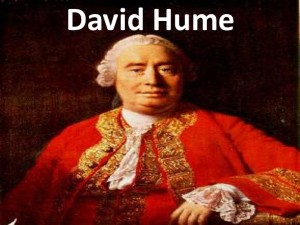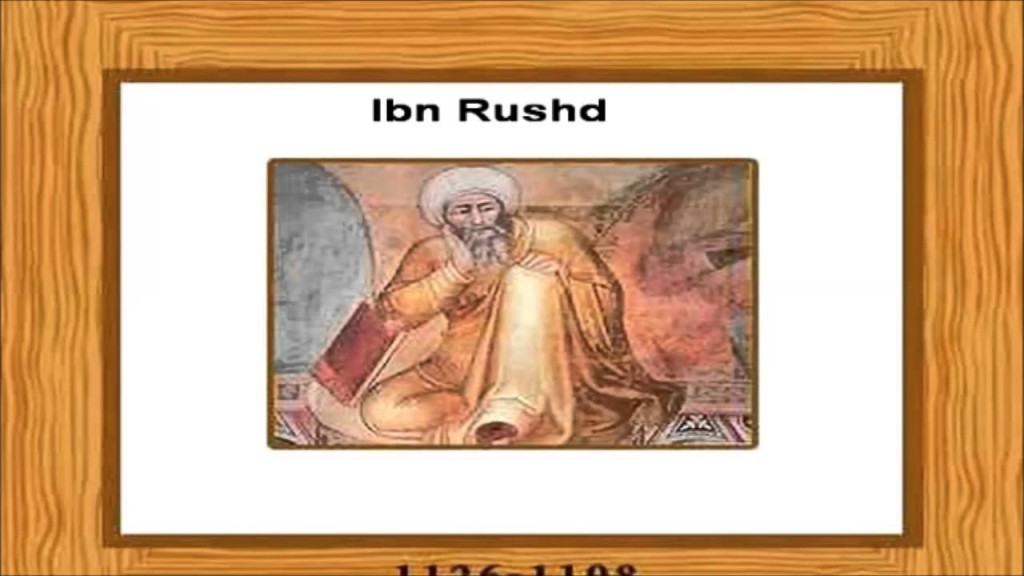 Ibn Rushd’s refutation of Ghazzali, is not confined to the mode of argument they employed in the study of divinity, but also to the one that used for understanding nature. In the book Tahafut al-Falasifa (The Incoherence of the Philosophers), Ghazzali, though accepting natural sciences studied by philosophers, rejects four notions the philosophers utilized in their study. One of these notions is the principle of causality. Ghazzali rejects in particular the existence of necessary connection between cause and effect. As he puts it:
Ibn Rushd’s refutation of Ghazzali, is not confined to the mode of argument they employed in the study of divinity, but also to the one that used for understanding nature. In the book Tahafut al-Falasifa (The Incoherence of the Philosophers), Ghazzali, though accepting natural sciences studied by philosophers, rejects four notions the philosophers utilized in their study. One of these notions is the principle of causality. Ghazzali rejects in particular the existence of necessary connection between cause and effect. As he puts it:In our view, the connection between what are believed to be the cause and the effect is not necessary. Take any two things. This is not That; nor can That be This. The affirmation of one does not imply the affirmation of the other; nor does its denial imply the denial of the other. The existence of one is not necessitated by the existence of the other; nor its non-existence by the non-existence of the other. Take for instance any two things, such as the quenching of thirst and drinking; satisfaction of hunger and eating; burning and contact with fire; light and the rise of the sun;death and the severance of the head from the trunk; healing and the use of medicine; the loosening of bowels and the use of a purgative, or any other set of events observed to be connected together in Medicine, or Astronomy, or Arts, or Crafts. They are connected as the result of the Decree of Allah (High is He), which preceded their existence. If one follows the other, it is because He has created them in that fashion, not because the connection in itself is necessary and indissoluble. He has the power to create the satisfaction of hunger without eating, or death without the severance of the head, or even the survival of life when the head has been cut off, or any other thing from among the connected things (independently of what is supposed to be its cause).
So while accepting natural sciences, Ghazzali denies the very principle which makes the study of nature possible. Evidently, Ghazzali’s rejection of the principle of causality is motivated by his fear that one’s believing in causality would undermine his faith in Allah as the ultimate author of all things. He therefore insisted that the act of burning cannot be attributed to the fire, which after all is a mere substance lacking the will to act. The act of fire has to be attributed, therefore, to Allah or to angels acting in His behalf. As he puts it:
This is what we deny. We say it is God who — through the intermediacy of angels, or directly — is the author of the creation of blackness in cotton; of the disintegration of its parts, and of their transformation into a moulding heap or ashes. Fire, which is an inanimate thing, has no action. How can one prove that it is an agent? The only argument is from the observation of the fact of the burning at the time of contact with fire. But observation shows that one occurs with the other, not that it is by it, hence, no other cause.
Ghazzali’s rejection of causality is predicated on two arguments. First, that there is no logical connection between the cause and the effect. A necessary connection requires that a third entity is produced. Secondly, that observation can only establish a correlation, but not a causation between the antecedent event or object and the consequent one. This argument will be repeated later by a Western thinker, David Hume who will deny the necessary connection between cause and effect, but for completely different reasons. While Hume denied the necessity of causation because he adopted a purely empirical mode of thinking, refusing to admit any metaphysical arguments into science, Ghazzali rejected the same necessity because he feared that by admitting the necessity of causation he will have to reject the possibility of miracles. If the causality is a necessary principle, how would anyone be able to explain the survival of Ibrahim (Abraham) after he was thrown by his people into a burning fire?
 As with the case of Ghazzali before him, Hume’s denial of causality amounted to the denial of human reasoning, and the reduction of causal explanation to the “customary conjunction” between object.”What then is the conclusion of the whole matter?” What Hume saw as the lack of necessity in causal connections raised for Hume a puzzling question which he could not [give a proper] answer. Yet this formulation of the question was quite dangerous and had far-reaching implications for human reasoning. Hume poses the question and then answers it by saying: “A simple one;though, it must be confessed, pretty remote from the common theories of philosophy. All beliefs of matter of fact or real existence is derived merely from some object, present to the memory or senses, and a customary connection between that and some other objects.”
As with the case of Ghazzali before him, Hume’s denial of causality amounted to the denial of human reasoning, and the reduction of causal explanation to the “customary conjunction” between object.”What then is the conclusion of the whole matter?” What Hume saw as the lack of necessity in causal connections raised for Hume a puzzling question which he could not [give a proper] answer. Yet this formulation of the question was quite dangerous and had far-reaching implications for human reasoning. Hume poses the question and then answers it by saying: “A simple one;though, it must be confessed, pretty remote from the common theories of philosophy. All beliefs of matter of fact or real existence is derived merely from some object, present to the memory or senses, and a customary connection between that and some other objects.”Similarly, realizing that a complete rejection of the principle of causation could lead to absurdity, Ghazzali invoked the concept of habituation. The connection between cause and effect is not necessitated by something intrinsic to them, but is posited to the human mind as a result of the act of repetition.
Ghazzali’s denial of causality received with alarm by Ibn Rushd. For he regarded Ghazzali’s contention to be not only unnecessary for recognizing Allah as the ultimate Author of creation, but to be quite dangerous as well. To Ibn Rushd Denying causality was tantamount to denying the very structure of human reason and hence knowledge as a whole. Thus he wrote: Now intelligence is nothing but the perception of things with their causes, and in this it distinguishes itself from all the other faculties of apprehension; and he who denies causes must deny the intellect. Logic implies the existence of causes and effects, and knowledge of these effects can only be rendered perfect through knowledge of their causes. Denial of causes implies denial of knowledge, and denial of knowledge implies that nothing in this world can be really known, and that what is supposed to be known is nothing but opinion, that neither proof nor definition exist, and that the essential attributes which compose definition are void.
Ibn Rushd saw no contradiction between believing in the Creator as the ultimate cause and source for all action and event, and accepting the necessity of causal relations. Things have properties and effects after all because they were created and given their properties and effects by Allah. As he put it:
And, as we said, we need not doubt that some of these existents cause each other and act through each other, and that in themselves , they do not suffice for their act, but that they are in need of an external agent whose act as a condition of their act, and not only of their act but even of their existence.
The danger that Ibn Rushd saw in the trend represented by Ghazzali lies in the attempt to deny the diverse and multi-faceted nature of reality. If things are denied their individual existence and intrinsic properties, then differentiation and stratification of reality become superfluous. As a result, science will eventually be reduced to the science of divinity. Ibn Rushd wrote:
And further, what do the theologians say about the essential causes, the understanding of which alone can make a thing understood? For it is self-evident that things have essences and attributes which determine the especial function of each thing and through which the essences and names of things are differentiated. If a thing had not its specific nature, it would not have a special name nor a definition, and all things would be one — indeed not even one.
Source: The foundation of Knowledge, by: Louay Safi
